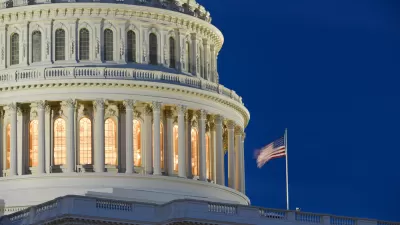While the HSR Authority hopes to get at least half of the $8 billion ARRA funding, it has yet to market any of the $10 billion in bonds passed by the voters because of its budget problems. Criticism abounds.
"The American Recovery and Reinvestment Act approved by Congress in February contains $8 billion to be doled out to states for development of high-speed rail service and passenger rail service among cities.
California wants half.
Mehdi Morshed, executive director of the California High-Speed Rail Authority and other California boosters are trying to make the case with federal transportation officials that when it comes to high-speed rail in the United States, the Golden State is king.
"All factors considered, we are at the top," Morshed said. "We are the only ones with a real high-speed rail project. Everyone else is just improving their current (conventional) rail service."
Yet the plan and the Authority has its critics.
"The only reason you wouldn't spend $2 billion or even $3 billion or more on California is if you had doubts about the state's commitment or ability to do the high-speed rail project," said Ross Capon, executive director of the National Association of Railroad Passengers. "California has the lowest bond ratings of any state and there are some doubts about its political leadership."
"The California authority has ignored the lessons of Florida and Texas, and has repeated all the mistakes," said Joseph Vranich, a former Amtrak official and former president of the High Speed Rail Association. "It hasn't produced a single number or report or prediction that is true."
For example, Vranich argues, California should be disqualified from receiving federal rail aid because its environmental impact statements are outdated and inaccurate."
FULL STORY: California's high-speed rail forces seek big slice of stimulus pie

Maui's Vacation Rental Debate Turns Ugly
Verbal attacks, misinformation campaigns and fistfights plague a high-stakes debate to convert thousands of vacation rentals into long-term housing.

Planetizen Federal Action Tracker
A weekly monitor of how Trump’s orders and actions are impacting planners and planning in America.

In Urban Planning, AI Prompting Could be the New Design Thinking
Creativity has long been key to great urban design. What if we see AI as our new creative partner?

King County Supportive Housing Program Offers Hope for Unhoused Residents
The county is taking a ‘Housing First’ approach that prioritizes getting people into housing, then offering wraparound supportive services.

Researchers Use AI to Get Clearer Picture of US Housing
Analysts are using artificial intelligence to supercharge their research by allowing them to comb through data faster. Though these AI tools can be error prone, they save time and housing researchers are optimistic about the future.

Making Shared Micromobility More Inclusive
Cities and shared mobility system operators can do more to include people with disabilities in planning and operations, per a new report.
Urban Design for Planners 1: Software Tools
This six-course series explores essential urban design concepts using open source software and equips planners with the tools they need to participate fully in the urban design process.
Planning for Universal Design
Learn the tools for implementing Universal Design in planning regulations.
planning NEXT
Appalachian Highlands Housing Partners
Mpact (founded as Rail~Volution)
City of Camden Redevelopment Agency
City of Astoria
City of Portland
City of Laramie



























